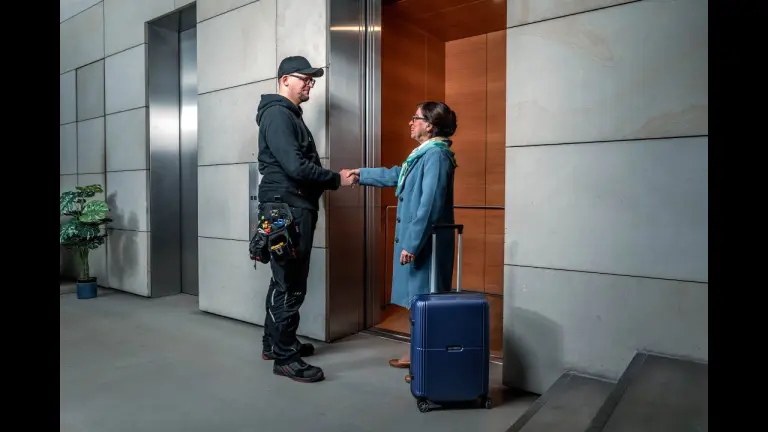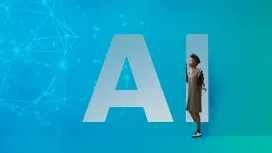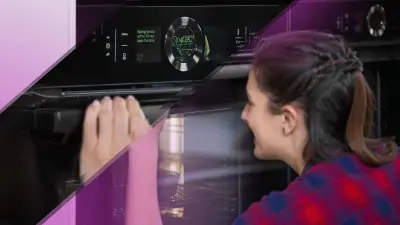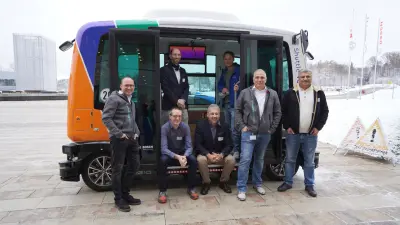AI-based elevator emergency call service bridges language barriers

Imagine being in another country and getting stuck in an elevator. Now imagine pressing the emergency call button for help and not understanding the language. This idea makes a bad situation only worse. However, there’s a solution: The multilingual elevator emergency call service, which is an AI-based voice bot that translates the conversation in real time between the trapped person and the emergency center… — a huge relief for people like Granny Ana:
How Bosch helps Grandma Ana out of the elevator:

Loading the video requires your consent. If you agree by clicking on the Play icon, the video will load and data will be transmitted to Google as well as information will be accessed and stored by Google on your device. Google may be able to link these data or information with existing data.
Imagining a new service from the customer’s perspective

The solution was developed by Bosch Service Solutions, and here's how it works: When a passenger gets stuck in an elevator and presses the emergency button, a service agent first establishes contact. If a language barrier is detected, the operator immediately activates the artificial intelligence system. The passenger is then prompted to select their preferred language for communicating with the emergency operator. A voice bot facilitates real-time translation, enabling a seamless conversation between the two parties.
When developing such solutions, Sebastian Brix, Digital Portfolio Consultant at Bosch Service Solutions, and the responsible teams, focus on one thing first: customer expectations. “Thinking of a new service from the customer's perspective and exceeding their expectations is the basis for success,” Brix is convinced. At the same time, he always keeps an eye on new technologies.
“AI and GenAI will revolutionize the entire service center industry,” says Brix, “they not only make customer services more efficient but also demonstrably better in quality.” Despite all the automation, it is important the service employee always makes the final decisions. “At its core, it will always be about the human factor,” Brix says, “which we combine with technology to offer users a unique service experience.”

“Whether service employees or customers — at its core, it will always be about the human factor, which we combine with technology to offer users a unique service experience.”
Why AI and GenAI are the digital boosters for customer service
How exactly do AI and GenAI change an entire industry? It is worth looking at common applications and their advantages.
Generative AI allows routine tasks to be completed efficiently. The customer benefits from having their issue resolved quickly and not having to explain their problem multiple times. GenAI can also automatically recognize the mood of callers, and capture important information from the conversation and automatically transfer it into a ticket. This, in turn, makes everyday life easier for service employees. "The fact that AI solutions relieve service employees of tedious tasks impacts the entire customer experience,” says Sebastian Brix.“This allows them to fully focus on the customers. The customers, in turn, feel they are getting full attention from the service.”
Automation has become a cornerstone of modern service centers from AI call routing to predictive analytics for problem-solving, where customer history analysis is used to predict new solutions. Automation simplifies processes and shortens response times. This trend not only increases efficiency but allows companies to offer 24/7 support for customers.
Another feature is personalization. Users do not want to be bored or annoyed with mass emails and basic communication. They want to be addressed with content that is genuinely interesting to them. Service centers can now offer tailored experiences by using customer data and advanced analytics. Whether personalized recommendations, individual greetings, or context-based addresses — personalization strengthens customer relationships and builds loyalty. Customers are unique and deserve individual attention.
The new multilingual elevator emergency call service is a prime example of successfully translating Bosch's digital ambitions (LINK) into practice: “When people can be rescued from a critical situation like being stuck in an elevator, our technology literally becomes a companion for life. The customer benefit is paramount here — through a solution that combines hardware and software,“ says Brix. “In this combination, we not only create a completely new user experience but also a product that has never existed before.”
Adiós, language barrier.



